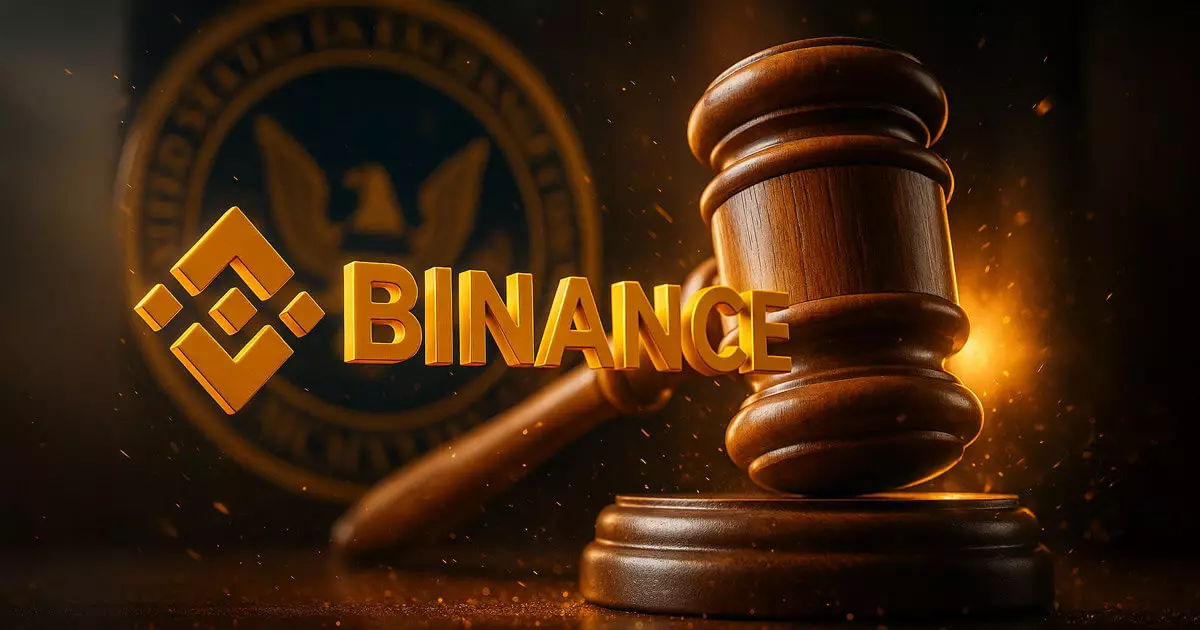The financial landscape is pulsating with unprecedented dynamics, primarily driven by the evolution of cryptocurrency. With the recent unexpected request by the U.S. Securities and Exchange Commission (SEC) to dismiss its civil complaint against Binance and its founder, Changpeng Zhao, we’re witnessing a significant shift. This request does not just close a case; it may signify a broader understanding and potentially a thawing relationship between regulators and the burgeoning world of digital assets. The announcement, made on May 29, suggests an evolving acknowledgment of the complexities surrounding cryptocurrency regulation.
What stands out significantly in this development is the SEC’s recognition of an internal task force led by Commissioner Hester Peirce. The new crypto task force is potentially a harbinger of a more nuanced approach towards the digital asset market, one that acknowledges the inherent challenges in applying traditional financial regulations to a rapidly changing domain. This movement towards adaptability in regulatory practices is essential, as innovation should not be stifled by outdated frameworks or reactive regulatory actions.
Binance’s Strategic Positioning
Binance’s response to these judicial unfolding has been nothing short of triumphant. They celebrated the SEC’s request for dismissal as a “huge win for crypto.” This perspective highlights a growing sentiment within the crypto community that prefers engagement and innovation over stringent regulations that threaten to stifle progress. Notably, Binance’s compliance with transparency mandates and commitments to user asset protection exemplifies how a self-regulatory approach could embody the best practices the industry desperately needs without the heavy hand of government intervention.
With the SEC’s civil action being dismissed, albeit without a clear indication regarding prejudice, the implications are profound. It raises questions about the SEC’s future strategies in handling cryptocurrency exchanges. If a major entity such as Binance is able to navigate through these legal hurdles with relative success, it sets a precedent that may encourage other innovative companies to challenge overreaching regulatory frameworks.
Regulation vs. Innovation
The SEC’s swift retreat from its assertive stance also underscores a crucial debate at the heart of financial governance: regulation versus innovation. In an environment where traditional institutions struggle to keep pace with the rapid advancements in tech-fueled finance, a rigid approach may ultimately harm not only the assets but also the very fabric of competitive markets. The crypto revolution is not just a financial disruption; it’s a cultural shift towards decentralization and individual empowerment.
Indeed, the current landscape can be likened to the early days of the internet, where regulatory bodies grappled with how, and to what extent, they should impose rules on a domain that was inherently global and outside traditional boundaries. If we learn from history, heavy-handed regulations often thwart genuine innovation and push development underground, which ultimately undermines consumer protections and market integrity.
The Future of Cryptocurrency Regulation
As the SEC pivots, the question arises: what does this mean for the future of cryptocurrency regulation in the United States? With Binance’s legal battles fading into the background, we find ourselves at a critical juncture. Investors, developers, and even regulatory bodies are left to reassess their strategies and approaches toward digital assets. The absence of a substantial monetary settlement in the SEC’s dismissal requests sends a message: the regulatory body may be gearing up for a more collaborative future within the industry, potentially leading to the establishment of guidelines that facilitate innovation while maintaining a basic level of investor protection.
This could very well signal the rise of a more mature regulatory framework for cryptocurrency — one that doesn’t simply react to events but actively engages with market players in a manner that encourages growth and accountability. It raises the stakes for U.S. innovation and allows us to position ourselves as global leaders in fintech advancement rather than retreating into protective silos.
In Closing
As the dust settles on this high-profile case, the implications for both Binance and the cryptocurrency market are vast and profoundly impactful. The need for a balanced dialogue between regulators and innovators has never been more apparent. The resolution of this case is not merely the end of a legal battle; it’s the catalyst for navigating the intricacies of an ever-evolving digital economy that requires foresight and adaptability. The reality is clear: a cooperative approach could unleash the full potential of cryptocurrency, reshaping finance as we know it.

